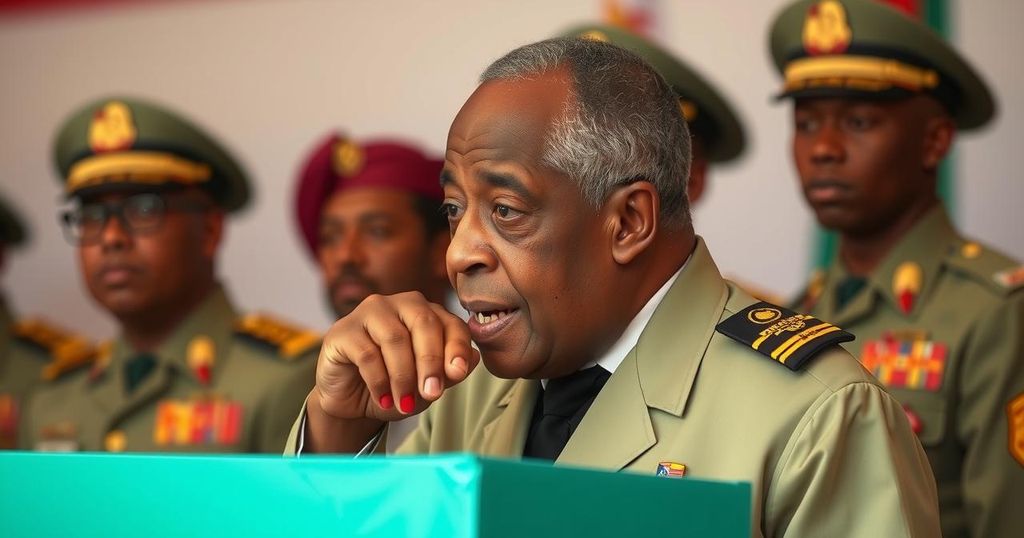Chad held a general election on Sunday amid opposition calls for a boycott, resulting in a low voter turnout of approximately 38 percent. The elections were framed by the government as a step towards ending military rule, although skepticism regarding their legitimacy prevailed among citizens. Voter disillusionment was notable, with allegations of pre-determined outcomes and isolated incidents of ballot irregularities. Despite some participation from military and nomadic voters, the broader implications of this election could significantly impact Chad’s transition to democracy.
On Sunday, Chad conducted a general election, proclaimed by the government as a crucial measure towards the end of military rule. Initial reports indicated a voter turnout of 38 percent, which was considerably low due to the opposition’s call for a boycott. Succes Masra, leader of the opposition Transformers party, claimed many voters had heeded the boycott, choosing to stay home instead. This situation may benefit candidates who are aligned with President Mahamat Idriss Deby Itno, who assumed power through military means in 2021 and was later legitimized in a contested presidential election in May. While Deby encouraged citizens to vote, stating it was a “historic day,” opposition leaders asserted that election results were predetermined.
Voter disillusionment was palpable, with individuals expressing skepticism regarding the legitimacy of the voting process. One voter, Herve Natouingan, remarked, “there’s no real voting in Chad,” while another, Patrice Lumumba Deoumoundou, expressed a desire for fundamental changes in the country’s socio-economic landscape. Despite these sentiments, the election management agency reported a record turnout among military personnel and nomads, suggesting a complex dynamic in voter engagement.
Polling stations continued to operate into the evening, overseen by international observers and political party representatives. Meanwhile, allegations emerged regarding election fraud, with the opposition Democratic Party of the Chadian People reporting missing ballots. The electoral process is occurring amid ongoing strife from the Boko Haram insurgency and accusations of Chad’s involvement in external conflicts. The government has framed the election as the final part of its transition to democracy, following the leadership change after the death of former President Idriss Deby, who ruled for over three decades.
Ultimately, the general election highlights the challenges faced in Chad’s political landscape, where issues of legitimacy and voter engagement complicate the transition to democracy, reflecting the citizens’ struggle for representation amid ongoing instability.
Chad has experienced significant political turmoil, transitioning from a long-standing dictatorship to a military rule after the death of former President Idriss Deby in April 2021. President Mahamat Idriss Deby Itno, his son, assumed leadership and has been navigating the complexities of establishing a democratic regime amid widespread dissatisfaction. Opposition parties have been vocal in their rejection of the military-led government and have organized boycotts to de-legitimize the elections. This context of military governance raises pressing concerns about electoral integrity, public participation, and the broader implications for governance in Chad, particularly with the backdrop of regional conflicts and economic challenges.
In summary, Chad’s recent general election reflects a contentious political environment characterized by low voter turnout and significant opposition to the ruling military government. The opposition’s boycott and public disillusionment highlight widespread skepticism regarding the legitimacy of the electoral process. Despite government assurances of progress towards democracy, the accusations of fraud and the ongoing socio-political challenges underscore the complexities inherent in Chad’s transition away from military rule. Clearly, the path to a stable and representative government remains fraught with obstacles.
Original Source: www.myleaderpaper.com






